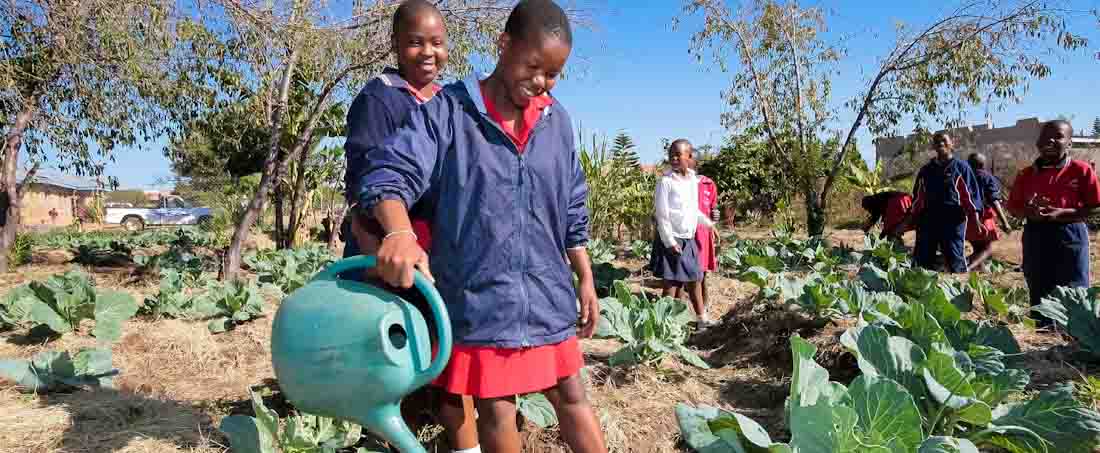Dangote Foundation, AfDB, Partners, Renew Commitment To End Child Stunting In Africa

Urging unity and action to accelerate nutrition targets amid the global Covid-19 pandemic, representatives of the African Development Bank, the Aliko Dangote Foundation and Big Win Philanthropy renewed their commitment to end child stunting and other forms of malnutrition through the Banking on Nutrition Partnership.
The partners convened during a high-level panel discussion held on 8 July, organized by the African Development Bank. They shared lessons learned, experiences, achievements of the Banking on Nutrition Partnership since its inception five years ago. They also discussed its implementation within the African Development Bank and its Multi-Sectoral Nutrition Action Plan, as well as measures to encourage other organizations and development banks to integrate nutrition into their portfolios.
“The Bank is relentless in pursuing bold targets to unlock Africa’s human and economic potential. It is our aim to inspire other actors to recognize nutrition as central to that agenda,” said Dr. Beth Dunford, Vice President, Agriculture, Human and Social Development Complex, African Development Bank in her opening address. “We need urgent action from all sectors to rise and renew commitment towards nutrition to help speed up the recovery from the COVID-19 pandemic and accelerate achievement of nutrition targets,” she added.
Other interventions during the programme came from Kesete Admasu, CEO of Big Win Philanthropy, Zouera Youssoufou, CEO of the Aliko Dangote Foundation, Joel Spicer, CEO of Nutrition International and Martin Fregene and Chanda Osward, directors from the African Development Bank.
Each speaker reaffirmed their commitment to the Partnership and to help countries end child stunting on the continent.
Malnutrition continues to rob generations of Africans of the chance to grow to their full physical and cognitive potential, hugely impacting health outcomes and economic development. The Banking on Nutrition Partnership aims to generate long term economic growth for Africa by investing in “Grey Matter Infrastructure.” In 2020, 61.4 million African children were registered as stunted, with Africa being the only region where the number of stunted children has risen and 40% of all stunted children in the world live on the African continent.
The Banking on Nutrition Partnership is a prime example of African leadership in health and nutrition. “When we have a practical result driven success story based on partnership, it is important to showcase it”, said Youssoufou.
“The value of the Partnership is for all of us to come together and look at how to incorporate nutrition more deliberately as part of a comprehensive protective wall of immunity around people from the inside and out,” Spicer said.
The Partnership has demonstrated its effectiveness through numerous initiatives and programs such as support for Ethiopia’s Seqota Declaration – a commitment to end stunting in children under two by 2030. The African Development Bank approved $48 million in funding for the Government of Ethiopia’s Multi-Sectoral Approach for Stunting Reduction Project (MASReP).
Positive results of the Banking on Nutrition Partnership include integration of nutrition into 18% of African Development Bank projects, with 21% of project interventions prioritizing focus on women and children. The Bank also surpassed its 2025 targets of 15% and 10% nutrition-smart investments in the WASH and social protection sectors respectively.
In its next phase, the Banking on Nutrition Partnership will prioritize 10 countries using the African Development Bank’s Grey Matter Infrastructure Investment Index, a criterion based on country rankings centered on their stunting burden and borrowing headroom. These countries include Nigeria, Democratic Republic of the Congo, Ethiopia, Tanzania, Sudan, Madagascar, Kenya, Burundi, Mali, and Burkina Faso.
“It will take a healthy and skilled workforce to put Africa on the recovery path after COVID-19 and, more importantly, to move the needle in transforming the continent and the quality of life of its people,” said Martha Phiri, Director of Human Capital, Youth and Skills Department.
Launched in 2018, the Multi-Sectoral Nutrition Action Plan 2018-2025 is an ambitious plan to leverage additional financial resources through nutrition smart investments across sectors such health, agriculture, WASH, social protection and education to support a 40% stunting reduction across the continent by 2025.







